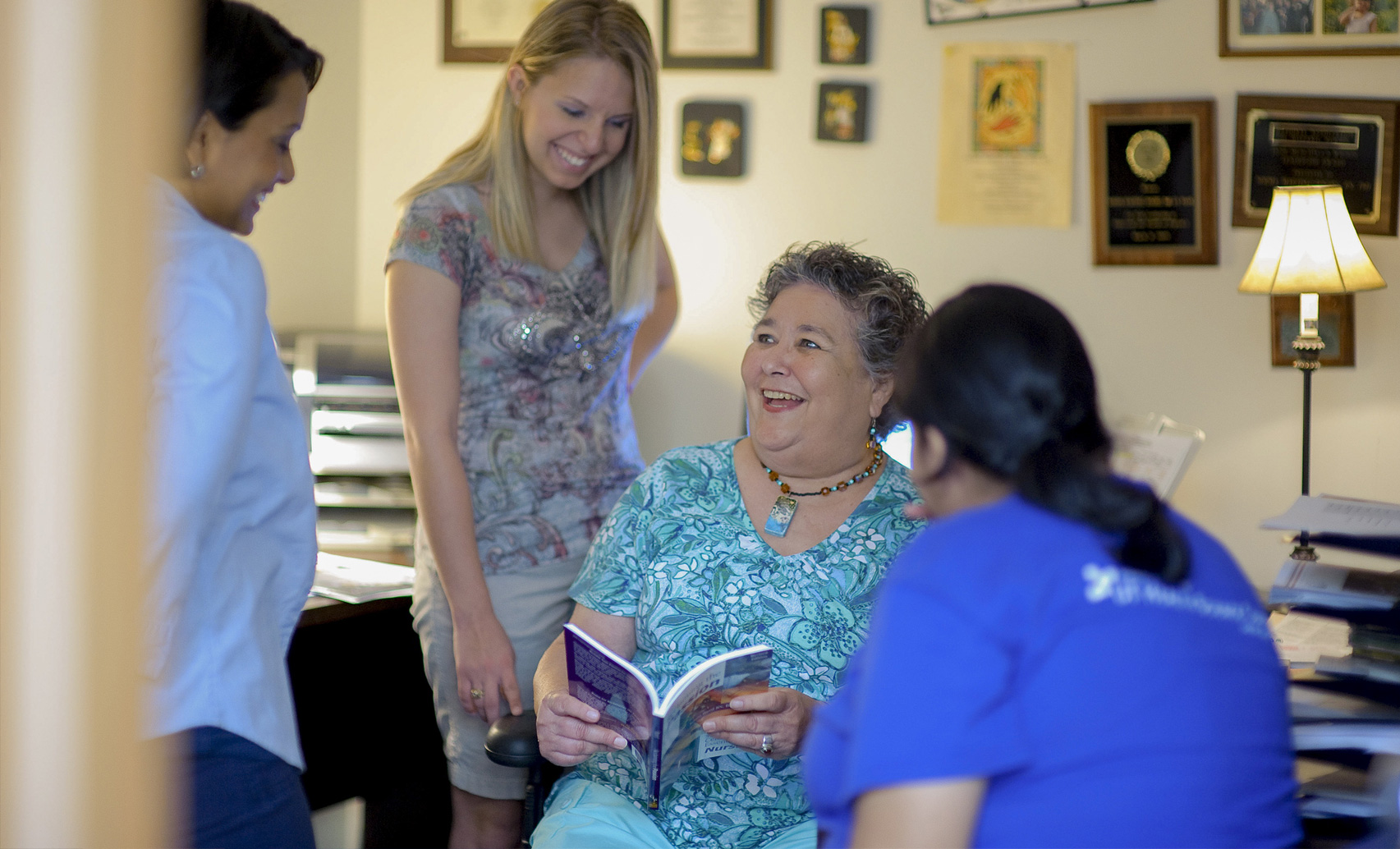Norma Martinez Rogers, Ph.D., RN, FAAN, knows first-hand what it is like to grow up in “the projects”. The professor of nursing spent her early years in the Alazan-Apache Courts public housing project in San Antonio.
The youngest of four daughters, she stood in line with her mother at a food bank to supplement the family’s dinner table.
Family values
Because of their circumstances, Dr. Martinez Rogers’ parents were committed to making sure their daughters were able to get good educations and the girls were taught to show their gratitude by helping others. Above all, Martinez Rogers remembers being told: “Never forget your roots!”
Dr. Martinez Rogers stayed true to these principles, earning four academic degrees and completing two postdoctoral fellowships in nursing. She has provided care as a psychiatric nurse practitioner for more than 20 years and has spearheaded several programs to help minority women and encourage students to improve their lives through education. Dr. Martinez Rogers has had the opportunity to work on a national level as an advocate for better health care for the underserved.
Following her dream
“I went into nursing because my parents encouraged me to choose a profession where I could make an impact on the community. Nursing was a way I could help others,” she said.
However, it was her two postdoctoral fellowships that solidified the direction her career would take. “I was teaching nursing students in Indiana how to provide care for migrants in a way that respected the Hispanic culture,” she said. “The migrant families and I spoke Spanish, and they lived in deplorable conditions in camps.
“The migrants and I faced racial discrimination on a daily basis in the community in a way I had never experienced it before,” Dr. Martinez Rogers said. “Being there gave me a lifelong commitment to do everything in my power to help others learn the meaning of acceptance.”
Putting dreams into action
In 1996, Dr. Martinez Rogers joined the faculty of the UT Health Science Center San Antonio, where she developed programs on cultural competence, the value of diversity and developing self-awareness as a person who is not the same as others. Some of her programs include:
- Martinez Street Women’s Center — Dr. Martinez Rogers co-founded this non-profit organization in 1996 to provide support and education to women and female adolescents. The program has served more than 12,000 clients.
- Juntos Podemos (Together We Can) — This mentoring program matches first- and second-year nursing students. “Many of the students are the first in their families to attend college,” she said. “The mentors receive a small stipend that helps with educational expenses, while the protégés receive help with their coursework, and guidance on how to balance school, work and home life to become successful students.” Begun in 2000, the program expanded to the graduate level, and 98 percent of the students are academically successful. In the summer, Juntos Podemos runs a health camp for the Martinez Street girls, introducing them to higher education and the health professions.
- Nuevas Fronteras (New Frontiers) — Started in 2001, this program helps women convicted of a felony transition back into society. More than 150 women have successfully participated in the program.
- Juntos Avanzamos (Together We Advance) Pre-Nursing Society — In 2007, Dr. Martinez Rogers initiated a partnership with The University of Texas at San Antonio’s Office of Health Professions. Undergraduate students interested in nursing receive mentoring from Juntos Podemos students.
National voice for the underserved
Dr. Martinez Rogers’ achievements have been recognized through numerous awards and fellowship in the American Academy of Nurses. She has served in national leadership roles, including president of the National Association of Hispanic Nurses.
Since 2010, Dr. Martinez Rogers has served on the national Medicaid and CHIP Payment and Access Commission. The commission advises Congress on issues about the Children’s Health Insurance Program (CHIP) and Medicaid, and reviews Medicaid and CHIP policies related to access to health care.
“It is an honor for me to serve on this commission,” she said. “I am in a position to advocate for families who are underserved and ensure that they receive the best possible medical care and preventive services. It also brings together the values my parents taught me and what I have tried to live up to all of my life. I can say that I remember my roots and have used my education to help others.”
